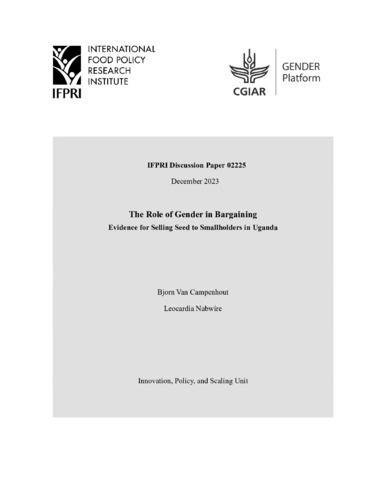The role of gender in bargaining: Evidence for selling seed to smallholders in Uganda
Abstract
In rural societies with strong gender norms and customs, small informal agribusinesses may often be one of the few ways in which women can independently generate revenue. However, previous research has indicated that female run business may be perceived less favorably compared to their male counterparts. In this paper, we examine potential consequences of these biased perceptions on business transactions. In particular, we test whether the gender of the seller has an impact on buyers’ negotiation strategies and eventual outcomes in bilateral price negotiations. We use a lab-in-the-field experiment in eastern Uganda, where a representative sample of smallholder maize farmers are offered the opportunity to bargain over a bag of improved maize seed variety from a male or female seller. We find that buyers confronted with a female seller are less likely to accept the initial offer price and respond with a lower counter-bid price than farmers faced with a male seller. Negotiations take an average of one round longer when the seller is a woman and the transaction price is almost 9 percent lower. For comparison, we also look at the effect of the starting price on the same bargaining outcomes and find that the gender disadvantage is roughly equal to a 20 percent higher starting price.

